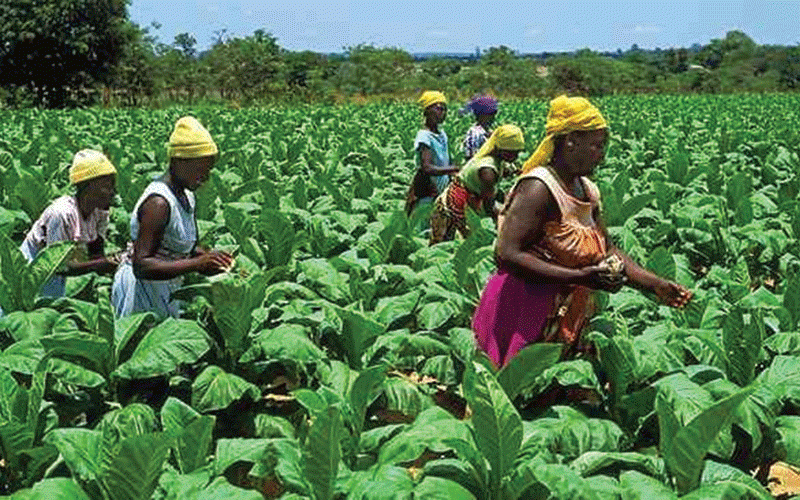
Stakeholders in Zimbabwe’s tobacco industry have flagged suspected nomadic contracted farmers who receive inputs and sideline sponsors thereby fuelling side marketing in the multi-million-dollar tobacco industry, an investigation has revealed.
An investigation by NewsDay has exposed some companies claiming "trust" on behalf of defaulting farmers with a chain of debts owed to several contractors with the contracted farmers becoming elusive during the tobacco selling season. According to sources, some farmers have devised schemes whereby they get inputs from a company and disappear.
They said the contracted farmers end up selling the tobacco through relatives or friends.
“Mostly farmers get inputs from surrogate companies that do not have watertight schemes to guard against side marketing.
“These farmers are afraid to take loans from established companies that have loss control departments run mostly by retired law enforcement members who have the know-how to prosecute farmers,” sources told NewsDay.
Central Association of Co-operative Union (Cacu), formed in 1974 to promote agriculture marketing and supplies stands accused of allegedly accommodating farmers with a dark past, according to the investigation.
“Cacu recruited farmers that migrate from one contractor to the other annually using different grower's numbers that has affected some contractors who gave them inputs but the farmers went on to sell the tobacco to other merchants,” sources said.
Premier Tobacco Auction Floor executive director Owen Peter Murumbi confirmed the tension between Cacu and his company.
- How contracted farmers are fuelling side marketing
Keep Reading
“The issue is being fuelled by Cacu which is misguided because it thinks it can sponsor farmers without financial guarantee.
“Almost 96% of the farmers they submitted to us are bad debtors. They have not been paying for inputs they get from different merchants.
“We have done our findings and we have nothing to hide. In fact we need funding to grow our business but we must start on a clean sheet.”
He appealed to the Tobacco Industry Marketing Board (TIMB) to blacklist all farmers who are not trustworthy by not paying for inputs they get in advance. No one can issue inputs where they cannot recover,” Murumbi said.
Cacu submitted 14 000 farmers to Premier Tobacco Auction Floors where 11 968 were already contracted with multiple debts for over three years.
It also emerged that 754 farmers had duplicate grower's numbers, 580 had duplicate grower's numbers with different names leaving 650 as vetted and successful farmers.
Cacu chief executive Martha Maziwa was elusive when contacted for comment.
“The matter is still under discussion and I understand TIMB is aware and assisting with the process,” she said in a telephone interview.
Meanwhile, Zimbabwe Tobacco Growers Association president George Seremwe has attributed poor profits from the golden leaf to nomadic and migrating farmers.
“We need a holistic approach to curb side marketing. We must work together with farmers so that they don’t feel exploited by merchants to keep the viability and profitability of the crop. Most farmers are making losses,” he said.
Contacted for comment TIMB public affairs officer Chelesani Tsarwe confirmed that they had received complaints from both Cacu and Premier Tobacco.
“Our understanding is that Cacu entered into a private agreement with Premier Tobacco to recruit farmers for its contract scheme. However, a majority of the growers submitted by Cacu were found to be ineligible for contracting due to pre-existing agreements. Since this is a private contractual matter between Cacu and Premier Tobacco, TIMB has no legal jurisdiction to intervene,” she said, adding that the industry regulator TIMB “remains committed to ensuring the integrity of the tobacco industry but cannot mediate disputes arising from private agreements”.
Tsarwe said the introduction of the biometric grower management system would further eliminate registration challenges, side marketing and other fraudulent practices. This system ensures that growers transact using unique biometric features tied to their grower’s numbers, making duplication impossible, she said.
“TIMB takes double-dipping allegations seriously and holds stakeholders accountable as per the Contractors’ Compliance Administration Framework. Double dipping is a grave offence and annually TIMB exercises its authority to resolve such cases accordingly to uphold [the integrity of] industry.”






